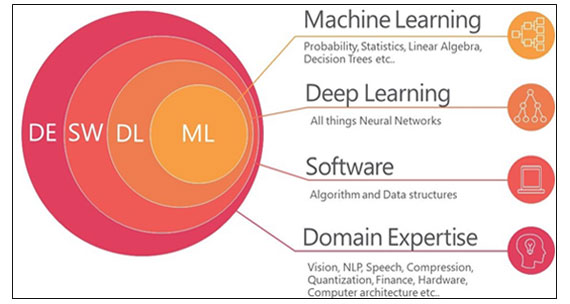Data Science & Machine Learning Interview 101
You applied for a data science job and received an interview call for the data science job role. Well done! Congratulations!
A Data Scientist Job Interview is not a test of your math and statistics knowledge but your ability to use it at the right time to create business solutions. Studies show that well-prepared candidates fail to clear the tough data science interviews as they are not able to explain their skills in an F2F setting. Even if you are confident about the skills required for the position, have several references at top tech companies and have no impostor syndromes- data science interviews can turn out to be a stressful experience if you are not prepared.
First let us understand the Different Roles, Skills and Interviews in Data Science
The first thing you need to understand is that there are a variety of roles in the data science ecosystem. A typical data science project has a lifecycle that's made up of several functions. A data scientist is just one component in a successful data science project. Here's a quick run through of the different job roles that currently exist:
- Data Engineer
- Data Scientist
- Business Analyst
- Data Analyst
- Data Visualizer (the Storyteller)
- Statistician
- Data Science Manager
- Data Architect
- Machine Learning Engineer
- Computer Vision Engineer

Build your Digital Presence
- You should have a LinkedIn profile. It should be updated and optimized according to the role(s) you’re applying for. Apart from that, the Data Science community on LinkedIn is quite active, keeping you updated with the latest trends, projects and seminars are ongoing.
- Create a GitHub account. Programming is a vital cog in the data science machine. Uploading your code and projects to GitHub helps the recruiter see your work first-hand. Nothing is more convincing than a well-documented code!
- Participate in Hackathons. Regularly solving problems on Kaggle competitions and other platforms is a really good way to showcase your skills and how you deal with real world case studies.
- Regularly answer data science relevant questions on Quora. This conveys your understanding of the subject matter.
- Start publishing your learning in blog form. Learned something new? Write about it. Put it out in the open. Ask the community for their feedback. That’s how you build credibility and enhance your chances of getting an interview.
- Apply to speak at meet-ups and conferences. Build your reputation in the data science community by attending events like DataHack Summit. If you can get through as a speaker, the job offers might just start rolling in.
Prepare your Resume
Make sure your resume reflects the relevant technical skills you'll need for the job. Create different resumes for different roles. Talk to the HR or alumni of the company and see what the expectations are. A startup will usually have very different hands-on expectations as compared to an established corporate firm.
Levels of Data Science interviews
- The first level of a data science interview tests a candidate’s knowledge on logical and analytical aptitude through various data science interview questions based on puzzles, guess estimation and some quick math concepts.
- The second level of a data science interview tests a candidate's knowledge on the daily activities of a data scientist like data cleaning and data preparation challenges. Most of the data scientist interview questions asked at this level includes questions based on various statistical concepts, machine learning concepts and programming based questions in languages like Python and R.
- The third level of a data science interview basically tests hands-on experience of the candidate on various case study and scenario based questions. This level of a data science interview assesses a candidate on his thought process of approaching a given business problem, data preparation methodologies, exploratory data analysis, and modeling capabilities.
Interview Tip: - Be well prepared with the data science projects you have worked on and ensure that you know each and every minute detail of the project right from how data was collected, prepared and analyzed. If an interviewee is not taking the opportunity to get into the details of the project that they worked on they can never hit the mark in clearing the interview.